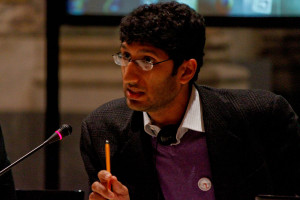 Michel Foucault had much to say—mostly critical—about medicine. But the rarity of any mention of his name in medical journals tells me that medicine has had far less to say about him, perhaps unsurprisingly. Why engage with a philosopher, especially one who suggested in no indirect terms that medicine was inherently political, that the medical interaction was fundamentally a power relationship in which patients were objectified and brought under control?
Michel Foucault had much to say—mostly critical—about medicine. But the rarity of any mention of his name in medical journals tells me that medicine has had far less to say about him, perhaps unsurprisingly. Why engage with a philosopher, especially one who suggested in no indirect terms that medicine was inherently political, that the medical interaction was fundamentally a power relationship in which patients were objectified and brought under control?
And while his name does not appear in The BMJ this week, I could not help but think of Foucault’s term the “medical gaze” when reading the first in The BMJ’s new monthly series, What Your Patient is Thinking. The article turns the tables. In her essay, Emma Lewis—a patient—tells doctors: “Fat people know that they are fat. You don’t need to tell us; society’s been doing that our whole lives.”
I found Emma’s story fascinating. Emma is active, exercises regularly, and can squat a 100kg barbell. She also has a body mass index greater than 30, and it seems that none of her many doctors are able to restrain themselves from focusing on this. Inevitably, encounters with doctors lead to discussions about her weight, irrespective of the reason she sought care in the first place. “Focus on what the patient has come to see you about today . . . Think twice before offering unsolicited advice in the guise of ‘education,’ particularly when your patient is consulting you about something unrelated.”
Giving patients a loudspeaker is going to amplify the discomfort. But that’s the point. “Though patients and carers are becoming more involved in the ongoing education of healthcare staff, we rarely have the chance to set the agenda for what we would like you to learn,” says patient editor Rosamund Snow.
Articles in the new What Your Patient is Thinking series will vary in focus but, as Snow explains in an editor’s choice article, all will “offer practical things you [doctors] can do differently tomorrow as a result of reading what we [patients] have to say.”
While Foucault seemed to dismiss much of the entire medical profession, I think there’s a lot of truth in Snow’s far more gentle conclusion: “Doctors who come across as poor may just be unaware of what they do wrong. Excellent doctors need to know what makes them excellent, so they can keep on doing right.”
It is perhaps a lesson for public health as well. In her new column, Margaret McCartney rails against the pressure public health officials are putting on GPs to prescribe Tamiflu for prophylaxis of influenza in nursing homes.
In the Thames Valley area of NHS England, doctors recently received a letter from officials that McCartney says went beyond conveying a recommendation to prescribe Tamiflu, instead containing a “veiled threat”: prescribe Tamiflu in accordance with guidelines, or lose your license. “The architects of mass public health interventions still don’t grasp that populations are made up of individual patients. Each person offered antivirals needs not just an assessment of dose but also a discussion of risk and harm.”
Peter Doshi is an associate editor for The BMJ.